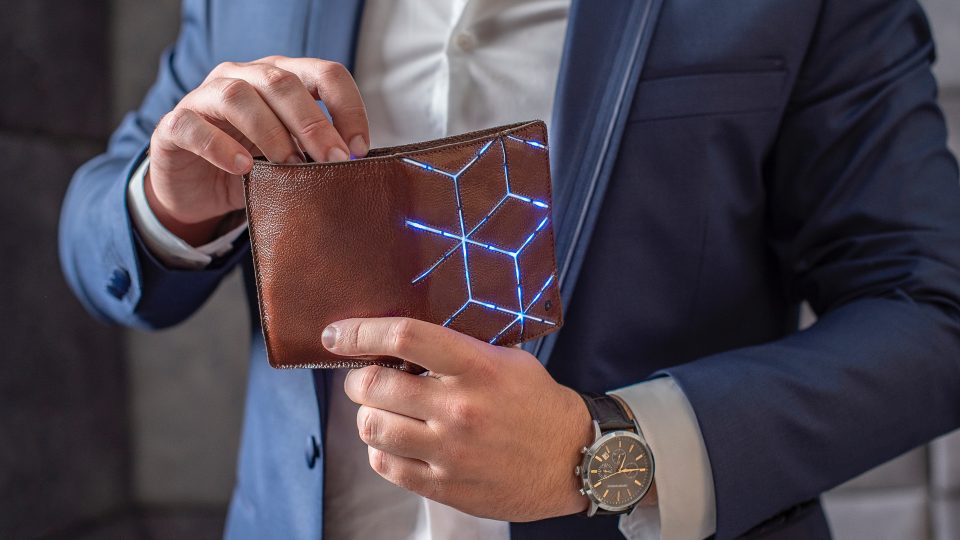What Exactly Is a Crypto Wallet?
Wallets, traditionally used to store money, come in all sorts of shapes and sizes. They can contain physical cash, bank cards, receipts, memberships, you name it. So what is a crypto wallet, and why do you need one?
The concept of a digital wallet is nothing new, so don’t let the idea of a crypto wallet scare you! You may have heard of a little fintech company called PayPal. This online payments system offers an alternative from paper formats for money transfers. When you sign up to PayPal, which around 400 million people have done, you get a digital PayPal wallet.
You could very well have been casually using a digital wallet to buy goods and send or receive money for years without even really realising it. This isn’t SO different from the way a crypto wallet works.
Table of Contents
What Is a Crypto Wallet?
Are All Wallets Digital?
How Do Wallets Work?
Choosing the Right Wallet
Wallets on Fractis
What Is a Crypto Wallet?
If a regular wallet is used to store fiat money (money that is declared legal tender by the government, normally issued by a bank), then a crypto wallet is used to store cryptocurrency. It can also hold things like tokens and NFTs.
To be more specific, crypto wallets store your keys and passwords that allow you to access your crypto. Alongside this, they let you send, receive, and store crypto, much like a PayPal wallet.
Are All Wallets Digital?
Okay, so we keep referring to digital wallets. In actual fact, not all wallets for storing crypto are digital. Whilst they all contain digital information, you can get wallets based in hardware.
These tend to come in the form of small drives that look like USB sticks. The Ledger hardware wallet is one example of this. It might sound risky putting all your crypto eggs into a small, easy to misplace basket. But, for some people, this risk is far less concerning than placing trust into a fully digital wallet.
Many wallets come in the form of mobile apps and web extensions, however. This makes them incredibly simple to use, just like using a credit card online.
How Do Wallets Work?
Crypto wallets are built on blockchain technology. This is a digital ledger that offers greater security, reliability, and transparency than any bank or private financial institution. Each wallet has an ID, which is a long string of numbers and letters.
When setting up a wallet, you are given a “seed phrase”. This consists of a jumble of random words. It’s imperative that you store a record of your seed phrase somewhere super safe, and NEVER give it to anyone else. Just like the PIN for your bank card. The seed phrase is what helps you recover the contents of your wallet if you lose access for whatever reason.
To use your wallet to buy, sell, or trade crypto, you’ll need to connect it to whichever marketplace you’re using. You can have more than one wallet. In fact, it’s advisable to spread your crypto across several wallets, to protect yourself against unfortunate scenarios, like losing your private key, or even hacking.
Choosing the Right Wallet
There is a lot of choice out there when it comes to crypto wallets. It can be difficult knowing which one (or ones) to pick, and understanding what makes a good wallet.
Fortunately, wallets are free to use, so you can try out different ones and see which you prefer. Generally, you’ll be looking at whether you find the interface simple to use and attractive to look at. If you’re a company, you’ll want to make sure you can set up business wallets.
Metamask is one of the most well-known wallets, and is compatible with the Ethereum blockchain.
Side note: it’s worth mentioning that certain wallets fit with certain blockchains and currencies.
The Coinbase wallet is ideal for beginners, and Fortmatic is also great – you can set this up using just your email address!
Wallets on Fractis
If you want to buy and sell NFTs on the Fractis marketplace, you’ll of course need to set up a wallet. Since Fractis operates on the Solana blockchain, you’ll need a Solana friendly wallet.
We recommend using Phantom. This wallet is incredibly easy to set up, and can be used via mobile app or browser extension. For added security, you can even connect hardware wallets as well – something other big wallets haven’t managed to offer yet.
You can deposit into your wallet easily, with on-ramp companies readily connected and waiting for you. What’s more, you can just as easily trade currencies within your wallet. Phantom suggests a decentralised exchanged, based on the best price for the exchange, and even displays transaction fees. All the hard work is done for you!
